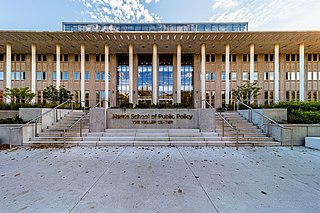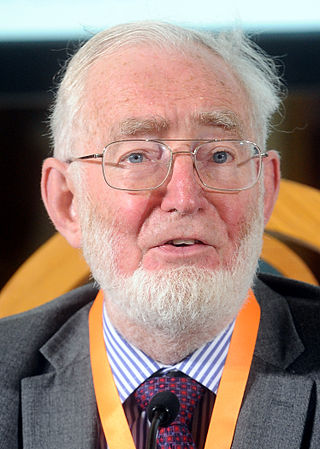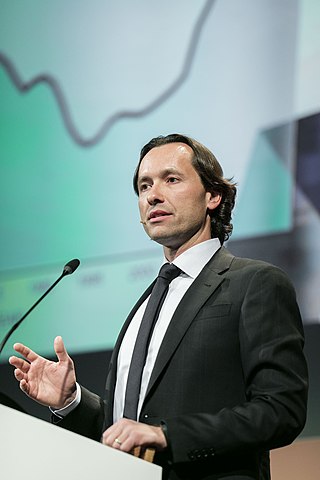Related Research Articles

Corporatocracy is an economic, political and judicial system controlled by business corporations or corporate interests.

Economic history is the study of history using methodological tools from economics or with a special attention to economic phenomena. Research is conducted using a combination of historical methods, statistical methods and the application of economic theory to historical situations and institutions. The field can encompass a wide variety of topics, including equality, finance, technology, labour, and business. It emphasizes historicizing the economy itself, analyzing it as a dynamic entity and attempting to provide insights into the way it is structured and conceived.

Poverty is a state or condition in which one lacks the financial resources and essentials for a certain standard of living. Poverty can have diverse social, economic, and political causes and effects. When evaluating poverty in statistics or economics there are two main measures: absolute poverty compares income against the amount needed to meet basic personal needs, such as food, clothing, and shelter; relative poverty measures when a person cannot meet a minimum level of living standards, compared to others in the same time and place. The definition of relative poverty varies from one country to another, or from one society to another.
Development economics is a branch of economics that deals with economic aspects of the development process in low- and middle- income countries. Its focus is not only on methods of promoting economic development, economic growth and structural change but also on improving the potential for the mass of the population, for example, through health, education and workplace conditions, whether through public or private channels.

Economic inequality is an umbrella term for a) income inequality or distribution of income, b) wealth inequality or distribution of wealth, and c) consumption inequality. Each of these can be measured between two or more nations, within a single nation, or between and within sub-populations.

Timothy Douglas Harford is an English economic journalist who lives in Oxford.

The School of International and Public Affairs (SIPA) is the international affairs and public policy school of Columbia University, a private Ivy League university located in Morningside Heights, Manhattan, New York City. It is consistently ranked one of the leading graduate schools for international relations in the world. SIPA offers Master of International Affairs (MIA) and Master of Public Administration (MPA) degrees in a range of fields, as well as the Executive MPA and Ph.D. program in Sustainable Development.

The University of Chicago Harris School of Public Policy is the public policy school of the University of Chicago in Chicago, Illinois, United States. It is located on the University of Chicago's main campus in Hyde Park. The school's namesake is businessman Irving B. Harris, who made a donation that established the Harris School in 1986. In addition to policy studies and policy analysis, the school requires its students to pursue training in economics and statistics through preliminary examinations and course requirements. Harris Public Policy offers joint degrees with the Booth School of Business, Law School, School of Social Service Administration, and the Graduate Division of the Social Sciences.

Sir Anthony Barnes Atkinson was a British economist, Centennial Professor at the London School of Economics, and senior research fellow of Nuffield College, Oxford.

William Russell Easterly is an American economist, specializing in economic development. He is a professor of economics at New York University, joint with Africa House, and co-director of NYU’s Development Research Institute. He is a Research Associate of NBER, senior fellow at the Bureau for Research and Economic Analysis of Development (BREAD) of Duke University, and a nonresident senior fellow at the Brookings Institution in Washington DC. Easterly is an associate editor of the Journal of Economic Growth.

Michael Robert Kremer is an American development economist currently serving as University Professor in Economics at the University of Chicago and Director of the Development Innovation Lab at the Becker Friedman Institute for Research in Economics. Kremer formerly served as the Gates Professor of Developing Societies at Harvard University, a role he held from 2003 to 2020. In 2019, Kremer was jointly awarded the Nobel Memorial Prize in Economic Sciences, together with Esther Duflo and Abhijit Banerjee, "for their experimental approach to alleviating global poverty."

Branko Milanović is a Serbian-American economist. He is most known for his work on income distribution and inequality.

Global Peace Index (GPI) is a report produced by the Institute for Economics & Peace (IEP) which measures the relative position of nations' and regions' peacefulness. The GPI ranks 163 independent states and territories according to their levels of peacefulness. In the past decade, the GPI has presented trends of increased global violence and less peacefulness.

Jonathan Morduch is a professor of public policy and economics at the Robert F. Wagner Graduate School of Public Service at New York University. He is a development economist most well known for his significant academic contributions to assessing the impact of microfinance since the early years of the movement. He has written extensively on poverty and financial institutions in developing countries and on tensions between achieving social impacts and meeting financial goals in microfinance.

Pranab Bardhan is an Indian economist who has taught and worked in the United States since 1979. He is Professor Emeritus of Economics at the University of California, Berkeley.

Stefan Nicolaas Dercon,, is a Belgian-British economist and a Professor of Economic Policy at the Blavatnik School of Government and the Department of Economics at the University of Oxford. He is also the Director of the Centre for the Study of African Economies.

Edward "Ted" Andrew Miguel is an American development economist currently serving as the Oxfam Professor of Environmental and Resource Economics at the University of California, Berkeley. He is the founder and faculty director of the Center for Effective Global Action (CEGA), a Berkeley-based hub for research on development economics.
Unconditional cash transfer (UCT) programs are philanthropic programs aim to reduce poverty by providing financial welfare without any conditions upon the receivers' actions. This differentiates them from conditional cash transfers where the government only transfers the money to persons who meet certain criteria. Unconditional cash transfers have developed on the premise that giving cash to citizens allows them to have autonomy over their own lives.
The Department of Economics is an academic department of the University of Oxford within the Social Sciences Division. Relatively recently founded in 1999, the department is located in the Norman Foster-designed Manor Road Building.
Oeindrila Dube is an economist and political scientist serving as the Philip K. Pearson Professor of Global Conflict Studies at the University of Chicago, Harris School of Public Policy. She is a faculty research fellow at the National Bureau of Economic Research and co-director of the Crime, Violence, and Conflict Initiative at the Abdul Latif Jameel Poverty Action Lab. Her research examines the political economy of conflict and development, with a regional focus on Africa and Latin America.
References
- ↑ "The Pearson Institute names inaugural faculty members". University of Chicago. 31 May 2016. Retrieved 9 June 2016.
- 1 2 Blattman, Chris. "About me".
- ↑ "@cblatts".
- ↑ "Penguin Random House".
- ↑ ""Why We Fight" investigates the origins of war". The Economist. 23 April 2022. Retrieved 10 October 2022.
- ↑ Neiberg, Michael S. (27 May 2022). "An incremental way to peace despite Putin and the persistence of war" . Retrieved 10 October 2022.
- ↑ "CGD Chris Blattman Profile".
- ↑ "J-PAL Chris Blattman Profile".
- ↑ "Chris Blattman: International development, economics, politics, and policy".
- ↑ "Chris Blattman: Contributor, Monkey Cage". The Washington Post .
- ↑ Blattman, Christopher (June 29, 2014). "Let them eat cash". The New York Times.
- ↑ Blattman, Christopher; Niehaus, Paul (May–June 2014). "Show Them the Money".
{{cite magazine}}: Cite magazine requires|magazine=(help) - ↑ "What Happens When You Just Give Money To Poor People?". NPR Planet Money. November 8, 2013.
- ↑ Lowrey, Annie (June 20, 2013). "Ending Poverty by Giving the Poor Money". The New York Times Economix blog.
- ↑ Yglesias, Mathew (May 29, 2013). "The Best and Simplest Way to Fight Global Poverty". Slate.
- ↑ Harford, Tim (July 12, 2013). "The Undercover Economist: How to give money away". Financial Times.
- ↑ Blattman, C.; Dercon, S. (2016). "Occupational choice in early industrializing societies: Experimental evidence on the income and health effects of industrial and entrepreneurial work".
{{cite journal}}: Cite journal requires|journal=(help) - ↑ Roser, Max; Ortiz-Ospina, Esteban (2013-05-25). "Global Extreme Poverty". Our World in Data.
- ↑ Harford, Tim (19 October 2016). "The sweatshop dilemma". Financial Times. Archived from the original on 2016-10-23.
- ↑ Blattman, Chris (2010-06-04). "Should you be an accountant?". Chris Blattman. Retrieved 2021-10-13.
- ↑ "Best wishes to the Blattman/Annan family". blogs.worldbank.org. 5 April 2011. Retrieved 2021-10-13.